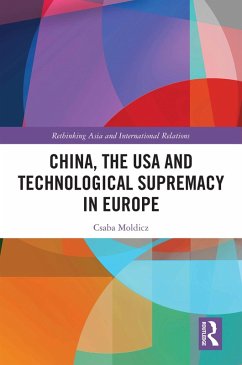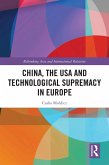Dieser Download kann aus rechtlichen Gründen nur mit Rechnungsadresse in A, B, BG, CY, CZ, D, DK, EW, E, FIN, F, GR, HR, H, IRL, I, LT, L, LR, M, NL, PL, P, R, S, SLO, SK ausgeliefert werden.
Mikhail Karpov, PHD, School of Asian Studies, Russian Higher School of Economics, Russian MGIMO (International Relations) University Senior Researcher.
"Reading about technological race from a political economy perspective is an exciting adventure. Writing about it is a very challenging undertaking because of the complexity of technological development itself and the dynamically changing web of interests of international actors. This is especially true when it comes to China's technological rise and global competition. Professor Moldicz is undoubtedly able to tie the knot between technologies, economic implications in a geopolitical context. Moreover, his approach is impeccable, logical and easy to understand - a much appreciated quality when writing about complicated topics. Not only does the author provide a theoretical framework for the topic, but he has also been able to confidently select the most relevant case studies. Economic history is replete with evidence of the importance of technological dominance leading to global economic power. This book is an excellent attempt to capture the underlying issues of the tectonic shift in the global technological race. It also explains with wonderful insight how China has been able to use all its intellectual and economic power to advance at tremendous speed, even though its global leadership is questionable, at least for the moment. A must-read for anyone trying to understand not just the surface, but the real driving forces behind today's technological interdependence between Europe, China and the US."
Tamas Novak, PhD, Diplomat for Science and Technology, former Director of Oriental Business and Innovation Center, Budapest









